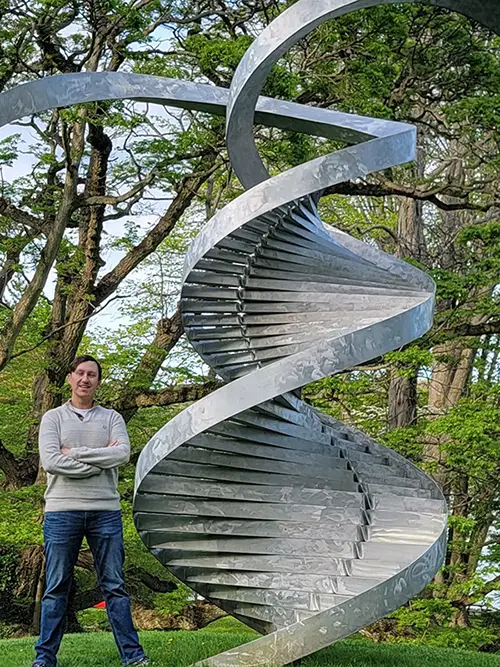Playter Exploring the 3D Structure of the Genome

Chris Playter has always been interested in science. Both of his parents are engineers, and in high school he enjoyed science classes the most. “I really became interested in science in my sophomore year as an undergrad at Purdue (University), when I took my first college genetics class and was fascinated by how four bases in very specific orders can make us that much different from something like a banana,” he said. “I changed my major from biology to genetics the following semester and loved everything about it.”
He did not do any undergraduate lab research at Purdue but did spend three summers doing lab research at Stanford University. “It was there that I truly fell in love with research and knew I wanted to make it my career,” Playter said. “After my last summer at Stanford, I got a job in industry to further my research background while I applied to graduate programs.”
He joined the BCMB department as a graduate student in August 2019 and is conducting his doctoral research in the lab of Associate Professor Rachel P. McCord, studying the 3D organization of the genome. “My research is a perfect combination of cancer biology and genetics,” he said. “My first scientific love was genetics, but as I got further into my college courses, I was able to take specific genetic courses, one being the genetics of human cancers. Obviously, cancer is something that everyone is familiar with, but I was always curious how it worked on a genetic level.”
“The most exciting thing about my research is that I am finding something new that no one has seen before,” Playter said. “My focus is on melanoma (skin cancer), and what we have found is that the act of cells squeezing through very small pores, like they do when cancer metastasizes, changes the 3D organization of the genome in those cells. This can help us understand why some tumor cells can metastasize while others cannot. My research can be a stepping stone for other researchers or even clinicians to help patients live longer after a cancer diagnosis.”
Playter finds support for his research department wide. “The department is extremely diverse in research areas ranging from protein biochemistry to plant biology and everything in between,” he said. “The department is extremely friendly, and even professors whose research is nothing like mine have been amazing at helping me think about my project in ways I would have never done on my own.”
When not in the lab, Playter spends time outside at the golf course and playing with his dog. He’s also a big sports fan who enjoys going to UT football and basketball games.